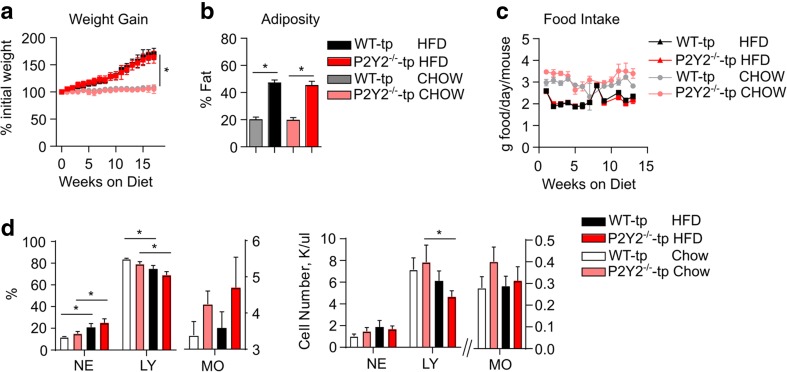Fig. 3.
Myeloid P2Y2 receptor deficiency does not alter weight gain, adiposity, or food intake during high-fat diet challenge. WT-tp and P2Y2−/−-tp mice were fed either a regular chow diet (Teklad) or high-fat diet (60% kcal from fat with 0.2% cholesterol, Bio-Serv) for up to 20 weeks. Mice were weighed weekly to reveal no difference between WT-tp and P2Y2−/−-tp mice weight gain on high-fat diet (N = 12, mean ± SD), *p < 0.0001 by two-way ANOVA (a). Adiposity was determined for WT-tp and P2Y2−/−-tp mice after 17 weeks of diet by DEXA scan (N = 12, mean ± SD, p < 0.0001 by one-way ANOVA with Sidak’s multiple comparison test) (b). Food intake was determined for WT-tp and P2Y2−/−-tp mice by determining food weight weekly per cage of four mice (N = 3 cages of 4 mice, mean ± SEM) (c). Hemavet analysis of blood immune cell distribution and absolute number from WT and P2Y2−/−-tp mice fed either chow or high-fat diet for 12 weeks (N = 4, mean ± SEM), *p < 0.001 by two-way ANOVA with Tukey’s multiple comparison test (d)

